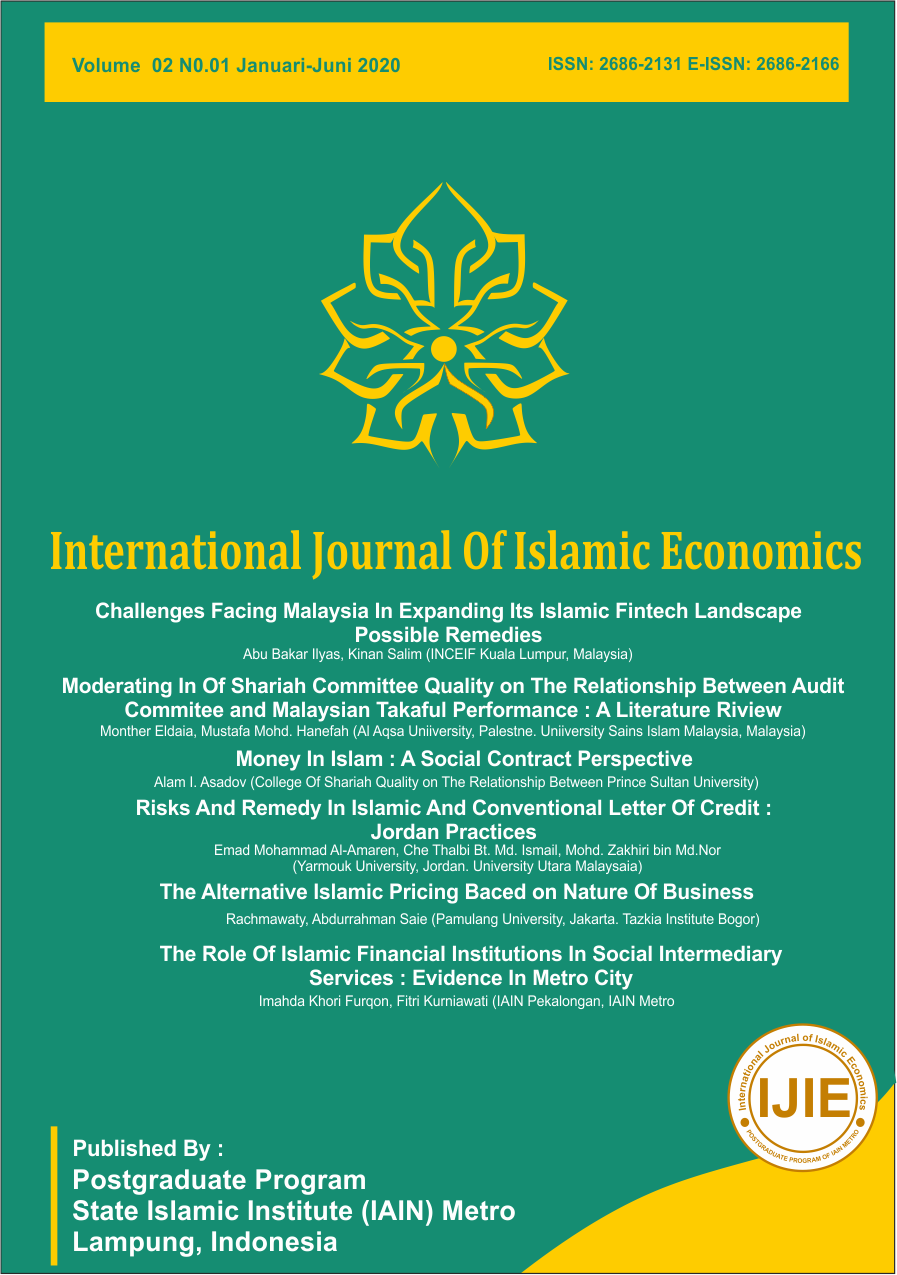RISKS AND REMEDY IN ISLAMIC AND CONVENTIONAL LETTER OF CREDIT: JORDANIAN PRACTICES
DOI:
https://doi.org/10.32332/ijie.v2i01.2065Keywords:
letter of credit; risks; legal remedy; Islamic Bank; Conventual Bank; Jordanian practiceAbstract
International trade and the movement of goods between parties living in different countries have spread in the last century and have become one of the fundamental features of the current trade. This proliferation of international contracts, of course, has its own problems. The problems of external Islamic or conventional letters of credit affect export, since letters of credit are considered a valuable tool used in financing foreign trade operations. Therefore, the problems faced by exporters in letter of credit reflect on and impact trade in general. Thus, the fewer the credit problems are, the more active foreign trade especially export will be. But if problems are relatively large, exports will contract. This study attempts to identify the problems of external and internal letters of credit facing the Jordanian traders and Jordanian Islamic and conventional banks, and to analyze them in an organized scientific manner, then proposing the appropriate recommendations to address these problems.








